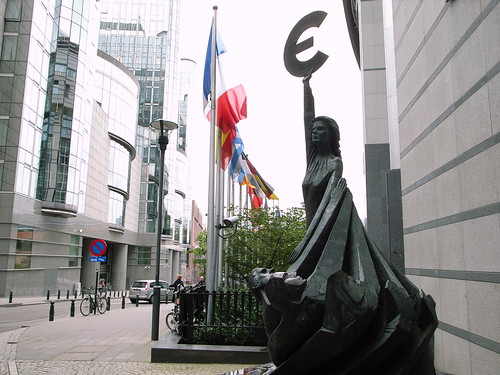 Picture: stevecadman (flickr) || Creative Commons BY-SA 2.0
Picture: stevecadman (flickr) || Creative Commons BY-SA 2.0
Recent allegations that three Members of the European Parliament (MEPs) accepted the promise of payments to table amendments on behalf of individuals posing as a ‘lobbying firm’ must instigate strong reforms at the European Parliament.
It is far more difficult to investigate and successfully prosecute allegations of corruption – especially those connected to a ‘sting’ operation where no money changes hands – than it is to set up the proper safeguards against such abuses in the first place. No system is completely safe from corruption and, ultimately, it comes down to officials respecting their ethical responsibilities, but that doesn’t mean we shouldn’t strive towards the perfect system.
Not that there are grave concerns about the integrity of all MEPs. In fact, the act of MEPs abusing their position for private gain is very much the exception, rather than the rule, of EU affairs. MEPs such as Pascal Canfin (Greens), Dennis De Jong (United Left) and Monica Macovei (European People’s Party) have called for a number of measures designed to increase the integrity of EU institutions, namely the re-evaluation of the European Commission’s use of Expert Working Groups, and a mandatory lobbyist register for all EU institutions (the draft transparency register is a watered-down outcome). MEPs have even recently used their power over budgetary matters as leverage to call for a review of the Commission’s code of conduct, which strongly reflected TI’s recommendations presented in May 2010.
However, the parliament itself has only a patchwork of poorly defined provisions that lack proper enforcement procedures (you can find out more about TI’s perspective on the current provisions in an opinion piece written for the European Voice).
There are many safeguards that can and should be put in place. While it is unfortunate that it takes a scandal to initiate a bout of soul-searching, it seems to be the norm in EU affairs, and now is as good a time as any to initiate change. Therefore TI calls for the parliament to seize the initiative and implement new transparency measures to include:
- A fully-fledged, cohesive code of conduct that would highlight a clear path from an alleged breach of the code, through to investigation, sanctions and / or criminal prosecution in the event of guilt.
- Rules on the disclosure of financial interests in a standardised format and in a searchable electronic database to allow citizens and civil-society groups to cross-check information and monitor MEP activities.
- A ‘legislative footprint’ – a method to track the influence of external advice on amendments and legislation. This could include a declaration of all meetings connected with a tabled amendment, in electronic, comparable format.
- Clear whistle-blowing channels so that MEPs, assistants and staff can discreetly inform relevant authorities about suspicious behaviour.
- Stringent rules related to MEPs holding a second job.
- Strong guidance on gifts and hospitality.
- Clear, established jurisdiction and guidelines on investigation and prosecution, including enhanced cooperation in cross-border investigations.
Do you agree? Should there be more stringent transparency requirements?
Des Carney, Transparency International Liaison Office to the EU















 Connect with us on Facebook
Connect with us on Facebook Follow us on Twitter
Follow us on Twitter